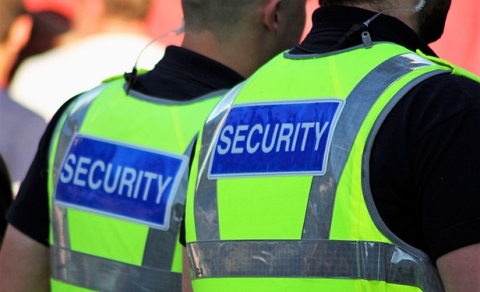Be Prepared: Creating Your Meeting and Event Security Plan

It goes without saying that meeting security is at the top of everyone’s minds right now. After the recent incident in Las Vegas, planners need to make sure that they – and their venues – are as prepared as possible to handle any emergency that may take place.
The Exhibitions and Meetings Safety and Security Initiative (EMSSI) was launched in 2016 by the International Association of Venue Managers (IAVM), the International Association of Exhibitions and Events (IAEE) and the Exhibition Services & Contractors Association (ESCA).
EMSSI’s mission is to protect the $283 billion U.S. meetings industry and the millions of people who attend meetings, conventions and exhibitions. Its supporters, which include more than 60 leading industry associations, hope to do this through the establishment of national guidelines for convention centers and related venues around the U.S., as well as alignment with the Department of Homeland Security (DHS) and the Safety Act office.
“We live in a very dynamic threat environment,” Mark Herrera, director of education for IAVM, said during a recent webinar sponsored by Destinations International and empowerMINT.com. “It’s critical that we all come together to find ways to mitigate the risks.”
Planners should work with their venues and suppliers to ensure there are safety and security protocols in place, and that everyone is well educated on how security measures will be implemented. It’s vital for planners to be aware of the process and procedures and have a good understanding of credentialing and access control measures.
Best practices for ensuring an event security plan include:
- Perform a risk assessment – always include a security representative in meetings
- Site evaluation, parking, and security – prepare a checklist of security questions
- Ask for evacuation plans in case of emergency
- Crowd management – crowd types and guard force requirements
- Know the location of all emergency exits
- Access plan for EMS and first responders
- Contingency plans in case of bomb threats or power outages
- Medical service plan – addressing injuries and illness, and defining a staging area
According to John Cychol, vice president of meeting sales at the Fort Worth Convention and Visitors Bureau, CVBs can add value for planners concerned about meeting security. He stressed that each destination should have its own crisis management and communication plan, but added that the common denominator is the knowledge and relationships that each CVB already has in place.
“(CVBs) are the voice of the industry for meetings, conventions, events and trade shows in each of our communities and we are the best resources for the meeting professionals,” Cychol said.
He continued, “We serve as a liaison and a conduit – we will know what is going on and can provide customers with timely communications that they can then share with their attendees,”
Examples of the types of question planners should ask event venues include:
- What type of training has the venue/supplier’s staff received and how recently?
- Has a threat and vulnerability assessment been performed?
- Who is responsible for crowd control and how will it be implemented?
- Is there a drone policy in place and what is the procedure?
- Is the venue Safety Act certified?
- What type of access control measures are required, especially for high in-and-out traffic such as is common with general service contractors?
- What is the perimeter security, and how does it work for inbound and outbound freight and cargo?
- How often do you invite law enforcement and EMS to your venue to ensure a high level of familiarity in the event of an emergency?
- Who is responsible for ensuring each piece of the plan is executed?
As new threats emerge, the best thing that planners, venues and suppliers can do is work more closely together to maintain the highest possible safety and security standards.
The initial phases of EMSSI are focused on convention centers but are being expanded to include hotels and other types of meeting venues. The American Hotel and Lodging Association (AHLA) has recently become more involved in moving the initiative forward.
“(EMSSI) is the industry’s voice - it is developed for the industry by the industry,” said David DuBois, president and CEO of IAEE. “Together we can make our industry safer,”
To learn more about EMMSI, go HERE.


Add new comment